

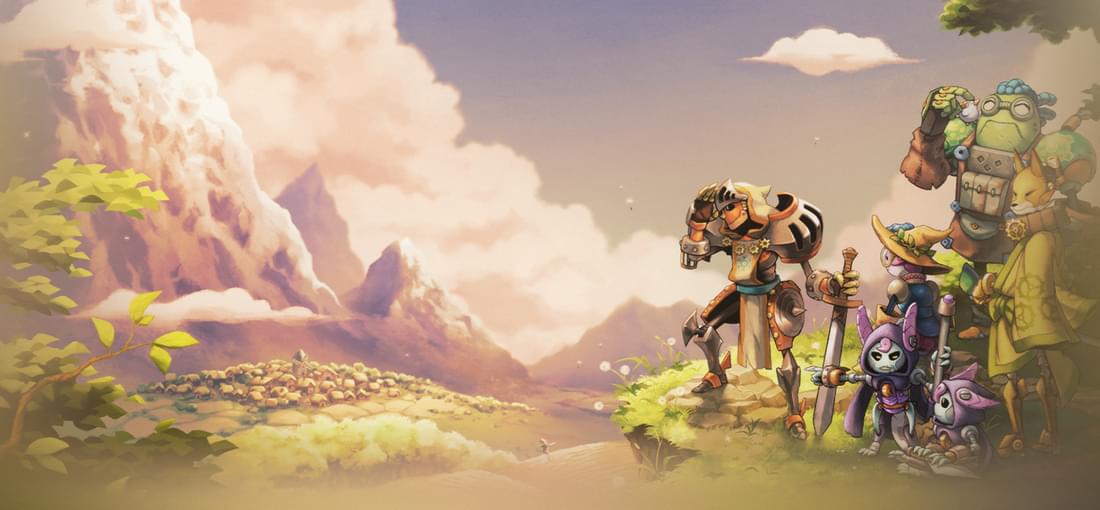
As a massive XCOM fan, I felt misled by the comparisons of Heist to XCOM. As a Magic: The Gathering enthusiast, Hand of Gilgamech left me similarly unsatisfied, but if you like SteamWorld and are into or curious about deck builders, you'll probably like Hand of Gilgamech. Of the five characters you will unlock, you will select three of them to make your party. Each character has a pool of cards, of which you will select eight to contribute to your deck, so your deck will have 24 cards. On each turn during a card battle, you draw to build a hand of six cards. You can discard and redraw two cards on your turn to improve your hand and you will play up to three cards. If you play three cards of the same character, you will get an additional effect that is defined by the weapon that character has equipped. Some cards have synergy with another character so playing those cards in the same turn will improve their performance, but you'll miss out on the bonus effect from playing three cards from the same character. Basic cards will build Steam Pressure in addition to their effect and other ability cards consume this Steam Pressure in order to be played. Enemies will play cards and build and consume Steam Pressure on their turns. I really liked the ability to improve my hand by discarding and redrawing two cards. Unlike in M:tG where discarded cards are basically forfeited, discarded cards in Hand of Gilgamech are shuffled back into your deck so you can redraw them later when you may have more need for them. Too few of the cards had effects that could be combined into combos and those combos were underwhelming. It was fun for these combos to drop an entire enemy party in short order, but there weren't enough interactions between cards to pull off dazzling combos that truly rewarded careful deck building, risk taking, and smart plays. Lacking this satisfying feedback, the mechanics don't rise above good for me, but I enjoyed my 50 hours with Hand of Gilgamech.
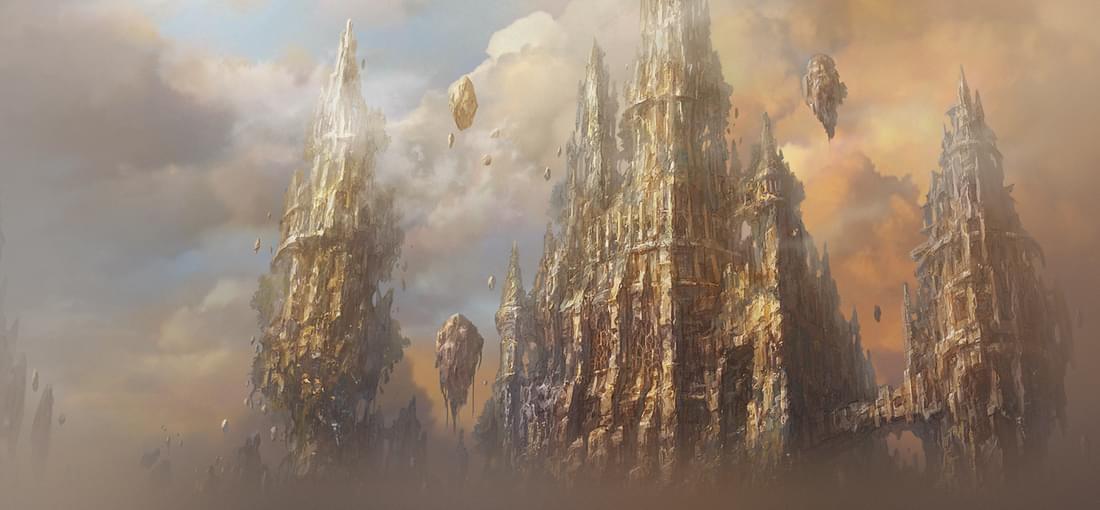
The art and character design are great and I really like the music and ambient sounds. I haven't experienced enough of the gameplay due to bugs. One of the nine chapters in the Tutorial cannot be completed due to an ambiguous "character misplaced" message. That isn't a big deal, but the first battle in the Story mode crashes on load! It's barely a game if the campaign mode doesn't work. I haven't tried the multiplayer or survival modes. The version on GOG is updated through September 2018 as of this writing. Not sure if the missing patches would resolve these issues.
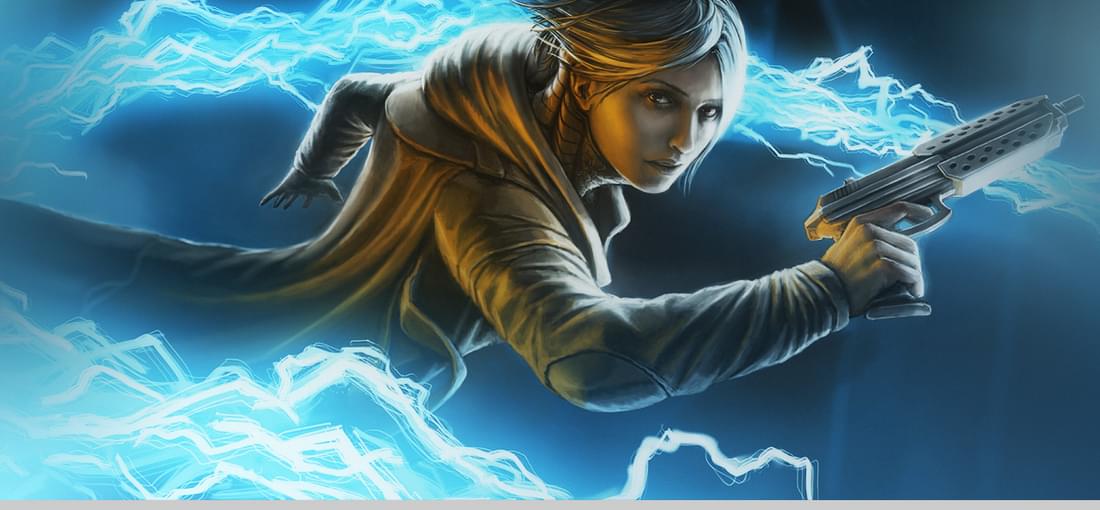
Having spent at least 20 hours completing Dex, what impressed me the most is the characters. The solid writing is delivered by excellent voice acting and the sprite work is of the high quality retro point-and-click games dedicated to their character design. The music at each NPC's location fit perfectly lending a familiarity to each character that made revisiting them much like seeing an old friend. The world design is also complete with its own character. Regions are unique with the futuristic slums appropriately dismal and the neon high rises sufficiently cyberpunk. The art is great and the associated audio is fitting, but it isn't as solid when compared to the depth of the character of the NPCs. The level design is mostly straightforward with some Metroidvania flare in alternate paths that can be explored with character upgrades. The combat is accessible with instant kill takedowns being my preferred approach. For stronger enemies Dex's punches, blocks, and dodges are pit against their attack patterns. Fights often become wars of attrition and once an area is cleared enemies do not respond unless the story demands it. The AR/hacking combat shifts out of a 2D brawler to a 2D shooter where Dex's avatar is bombarded with attacks from various viruses and intrusion countermeasures. The story leans on familiar concepts from sci-fi but has enough twists to be original. For me, story is just an excuse to explore more game mechanics in a cool environment and Dex's story achieves this. It doesn't distract but it doesn't enhance the experience either. I enjoyed exploring the world of Harbor Prime and learning the game mechanics to hone my skills and advance my character, but now that I'm done I don't feel the need to go back. Although I see that there are achievements I have not unlocked, I'm not motivated to go back and get them. Dex is good and does what it does well, but it didn't draw me in like great games can. I recommend it, but it isn't a favorite.
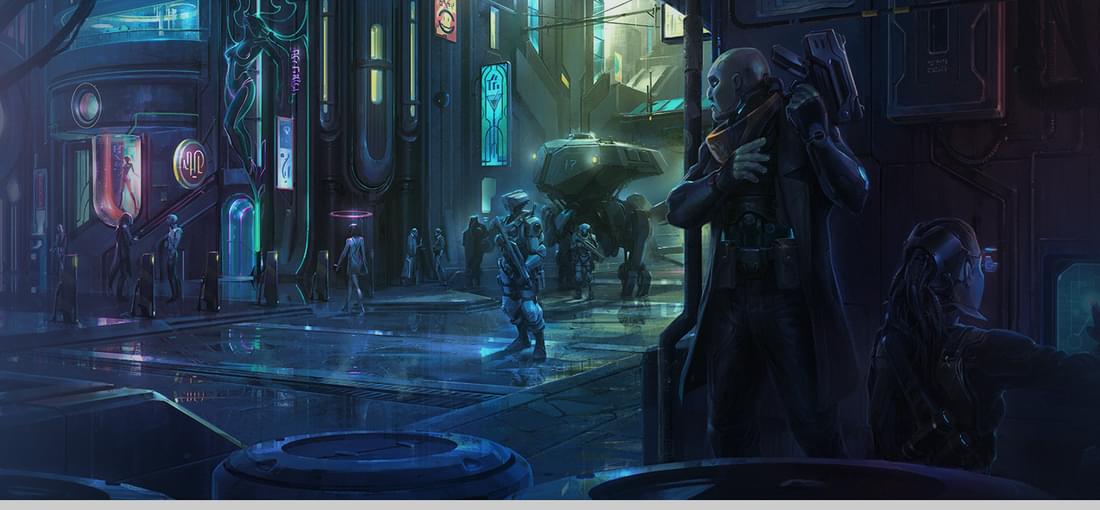
I tried playing Syndicate for the first time back in 201X and it aged so poorly as to be inaccessible, so I was excited to dive into its updated successor in Satellite Reign. I highly recommend it. The design is brilliant and neon, becoming a futuristic world you want to explore. The game play is also top notch and makes exploring the world fun. I approached missions with a stealth strategy so I ended up taking my time in the shadows watching patrol routes and timing my moves. I was always eager for the chance to try my tactics in a new complex. For some this may seem repetitive, but I enjoyed having more of a good thing. The game is also very well paced. Early in the game I had performed a number of heists in a sprawling, heavily patrolled complex only to discover that I had to return to that complex to advance to the next quadrant. I was hesitant to revisit this secure complex but by the end of the second quadrant I was looking forward to new and familiar challenges as the game built my confidence in my tactics. No matter how confident you are, you'll be on the edge of your seat whenever a patrol comes close to your hiding spot and until you get your last agent safely outside the complex to complete a mission. Even with the endgame weapons, gear, and abilities you'll be challenged, as a full frontal assault on most complexes will be quickly overwhelmed by enemy units. The loading times for Satellite Reign are a bit long, but once loaded you can go anywhere in the world. The enemy AI could have been a bit better as enemies could be assassinated steps behind fellow enemies without raising any alarms. The stealth kills were also a bit fidgety as your victim would walk away from your agent leaving him exposed and out of cover. More than once my agents got caught in the environment leaving them unable to move and get to safety. None of these issues held Satellite Reign back much making it a near perfect experience.
Throughout the course of The Cat Lady, I found myself intrigued but frustrated. Among the more immediate sources of frustration are the controls. You'll control Susan and interact with items and the environment with the arrow keys and the Enter key and that is it. This may seem petty, but binding to the WASD keys would have been much more comfortable. Additionally, it would have been nice to have a key to hold to make Susan run, if only because you don't need to watch her walk across the screen. You will want to run to get to the action. I found myself growing impatient with the frequent and lengthy dialogue Susan has with the other characters. I found no way to skip any of the dialogue, which would have been nice. Fortunately the voice acting is superb. Without it, the game would have been unplayable for me, despite how well written the script is. Your character Susan is slowly revealed through these interactions and her depression is relatable rather than painting her as obnoxiously pathetic. The friendly characters are gradually built up to be sympathetic and the antagonists make themselves absolutely loathsome. I never felt so determined to seek lethal revenge on any character in any other game as I did in The Cat Lady. Additionally, Susan is a completely dynamic protagonist and the pacing with which her history is revealed and how she develops during the adventure is expertly done. All of this dialogue is not broken up frequently enough by the puzzles. As bizarre as this game is, none of the puzzles were so obtuse as to be frustrating. There is also surprising variety in what seems like such a limited number of puzzles. The soundtrack like the voice acting is excellent. The art style is basic and appropriate and I found it neither exceptional nor distracting. The controls seemed archaic and I wished for more puzzles and less conversation, but perhaps the abundant dialogue was necessary to feel so passionately for your allies and against your foes
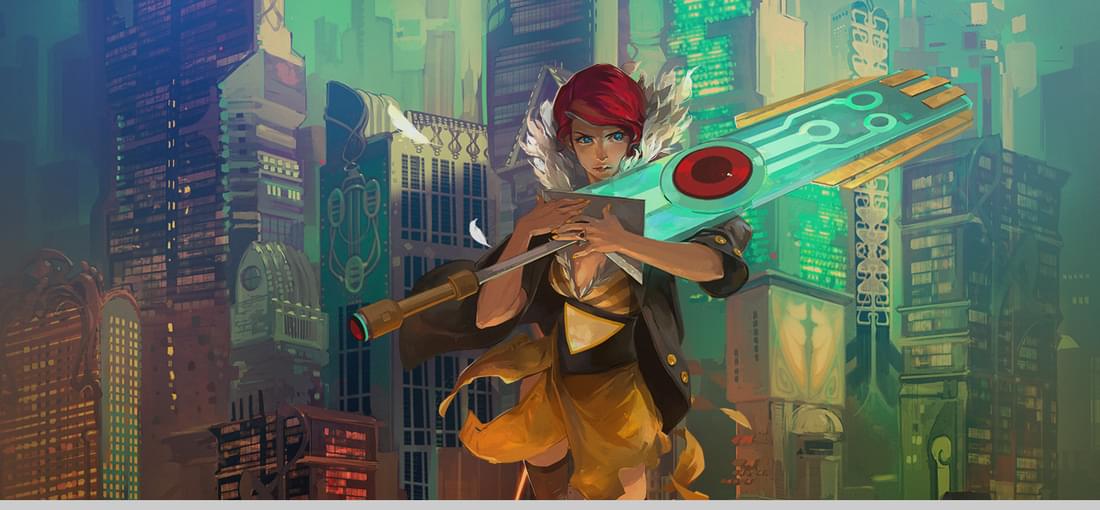
The style, the sound, and the setting of Transistor are flawless. The water colored art pops out of the digital landscape and the voice acting of your companion in the transition is somber and heavy. The soundtrack is good enough that I listen to it on its own. I really like the idea of being immersed in a digital world and modeling the attacks and abilities after computer function calls really appealed to me. Each of these abilities can be used one of three ways: as an active ability, as an upgrade to another ability, or passively providing a constant bonus that does not need to be activated. This scheme provides for a great deal of customization alloying the player to invent his own builds employing different strategies.. The player may use these attacks and abilities in real-time against his foes, which take the form of rogue processes. Alternatively, the player can freeze time and execute a limited number of abilities on enemies. This powerful ability to freeze time is balanced by a cooldown, but unfortunately the other abilities are locked out during this interval as well. The battles are frenzied enough with the number of enemies that engage the player at the same time, making having to run and hide during cooldowns that much more stressful. Although some combat scenarios will take some trial and error to overcome, they aren't impossible, just frustrating. Even so, I never felt that I really got the hang of the combat. Transistor kept me busy for about 13 hours. I recommend it.